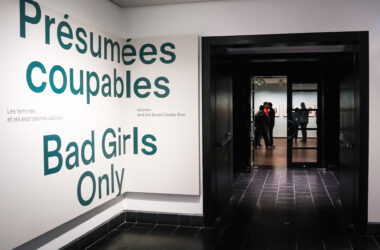 teaser-trailer.com
teaser-trailer.comEveryone loves a good comedy, and in that respect Easy A does not disappoint. The movie tells the story of a scrupulously ordinary high-schooler, Olive Penderghast (Emma Stone), whose clean reputation becomes unexpectedly tarnished when uber-Christian classmate Marianne (Amanda Bynes) spreads a rumour that she lost her virginity over the weekend. Although Olive was the one who originally started the rumour, this is quickly forgotten as the situation snowballs throughout the first half of the film.
After Olive helps a gay classmate avoid bullying by pretending to have sex with him at a party, a further string of similar requests from other sexually-starved boys follow in quick succession. By the end of the first half, the situation has reached a point of crisis where Olive’s reputation has been compromised by her desire to help others. All she can do is ridicule the rumours of her fake trysts by caricaturing them with absurd outfits and outlandish behaviour, at which point her inability to stand up for herself becomes particularly apparent to both the audience and the other characters.
The first part of the film is enjoyable due to the way director Will Gluck effectively situates the action in the setting of Ojai, California, making it both realistic and entertaining to watch. Sped-up shots of the high school campus mimic the hyperactive transfer of rumours through texts, emails, and Facebook gossip. Scenes of Olive walking down hallways surrounded by scrutinizing eyes subtly convey the alienation and objectification that comes with her predicament.
The film is carried by a strong performance from Stone, but is also sure to attract viewers due to its cast of mainstream Hollywood names, including Penn Badgley as Olive’s main love interest. However, the majority of the comic relief that makes Easy A successful comes from Olive’s progressive Californian parents, played by Stanley Tucci and Patricia Clarkson, who deliver an endless stream of hysterical one-liners. The film also features Malcolm McDowell, whose brief appearance is worth mentioning only for the blunt delivery of his line that a public school principal’s job is “to keep the girls off the pole and the guys off the pipe.”
With its glib, quick-witted humour and satirical portrayals of high school drama, Easy A has a strong script, carefully combining popular elements of previous box-office hits like Juno and Mean Girls. The script also pays more than a passing tribute to The Scarlet Letter as an inspiration for the plot (Olive and her peers study the book in English class), from which Olive takes the red A she boldly wears—complete with corsets and Ray Bans—for the majority of the film. Olive’s parents comment that she “kind of looks like a stripper, [but] a high end stripper, for governors and athletes.”
Ultimately, what makes Easy A a success is also what makes it somewhat unsatisfying. The depiction of Olive’s outsider status is something that anyone who has gone through high school can relate to. But such dilemmas rarely resolve themselves this neatly. The cheesy Hollywood ending to Easy A—which I won’t spoil for you—will keep the average moviegoer happy but remains formulaic, trite, and entirely outside the realm of common experience. By presenting the ideal resolution, Easy A leaves the audience on the outside, just like Olive.








